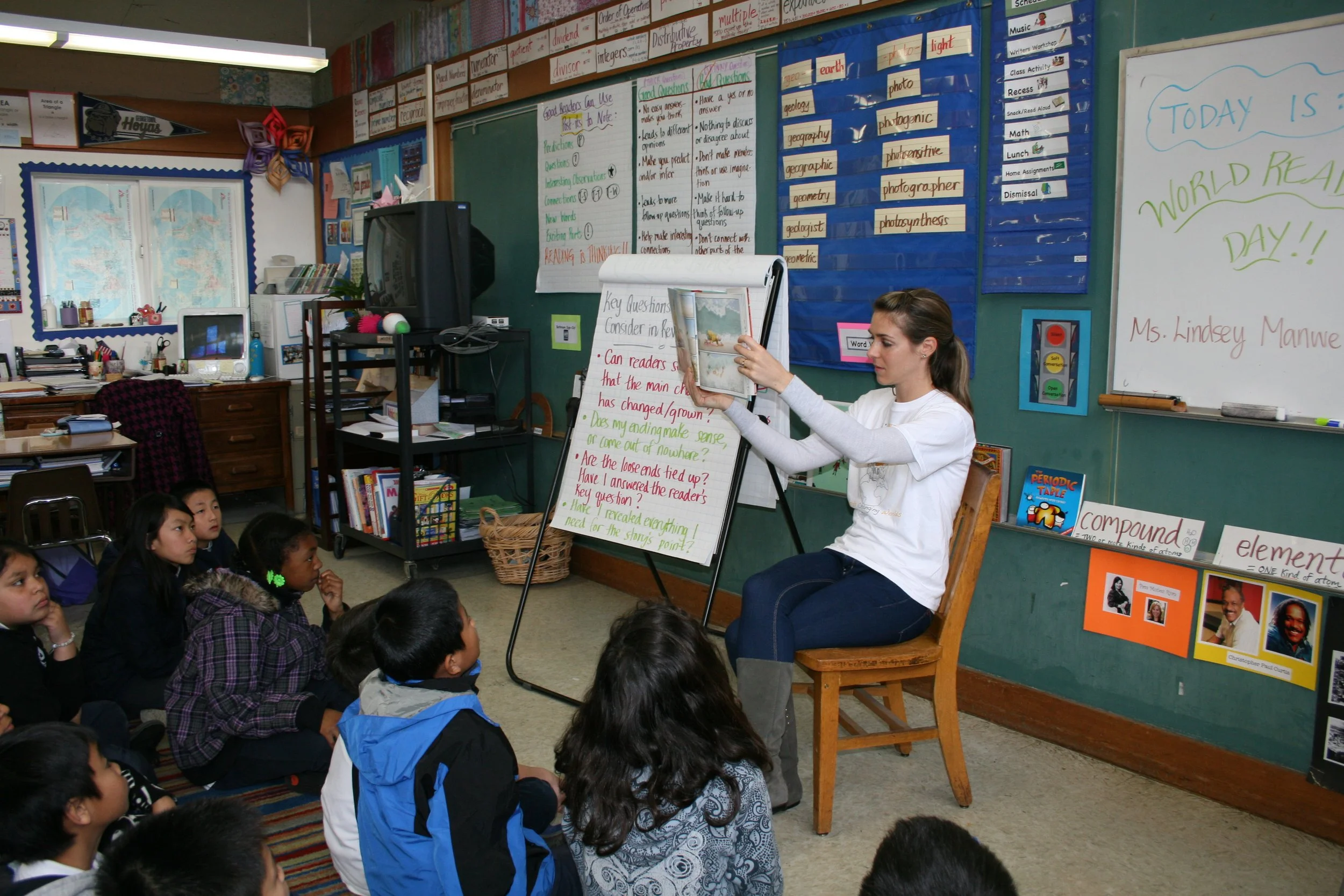Written by Amber Peterson, Director of Programming Innovation at LitWorld
I have been a self-proclaimed nerd all of my life. My childhood was shaped by Lloyd Alexander and Terry Pratchett, and the opening sequence of Star Trek, The Next Generation will always bring with it feelings of security and comfort.
For me, science fiction and fantasy provided much needed portals of solace and escape. As one of a handful of black children bussed to an almost exclusively white suburban school, I spent my formative years feeling very much like an outsider. It was in those stories that I found the celebration of otherness I craved; the person who stood out ended up saving the day and he or she was always ultimately embraced.
Growing up black in America, I understood that the characters in the stories I loved didn’t and wouldn’t look like me. While the heroes were always in some way different from the rest of their community, they were never so different as to be black. The good vs. evil dichotomy generally employed in these narratives was often underscored by an parallel association with light vs. dark, an association that extended to skin color. As such, I expected that if any characters did have a melanin count similar to mine, they would likely be villains.
The first time I questioned the certainty of this rule was upon reading A Wizard of Earthsea by Ursula Le Guin in 5th grade. The red-brown skinned protagonist was a revelation and opened my mind to the extraordinary possibility of seeing myself reflected positively in the stories that defined so much of my identity. My subsequent discovery of authors like Octavia Butler, Walter Mosley, and Nalo Hopkinson shattered the rigid boundaries I perceived and represented my initiation into the burgeoning enclaves of diverse, imaginative fiction.
There has been much recent attention focused on the need for diversity in literature. It is absolutely essential that we see stories that normalize the incredible heterogeneity of the lived experiences of people of color. The recent increase and success of books proudly centering minority characters cleanly shatters the age old axiom that those books do not sell. Especially in the realms of children’s realistic fiction and narrative nonfiction, I believe we’re slowly but surely beginning to see progress.
Despite this, speculative fiction- fiction with supernatural, futuristic, or other imaginative elements- is being left behind. Even as pop-culture adopts a decidedly speculative slant with the success of superhero franchises, dystopian epics, and legions of supernatural fandoms, people of color remain markedly underrepresented in the genre. Notable exceptions, such as the unprecedented success of Marvel’s Black Panther film, illustrate the hunger for representative speculative stories and the vast audiences eager to consume them.
Speculative fiction is powerful because it provides an unrestricted playground for our imaginations, a test site to explore our impulses and examine the consequences of them. It allows us to paint a picture of the world, not as it is, but as it could be. If these stories take us into our dreams and help us imagine the moral implications and literal possibilities of our future, than what does it say if people of color are not present? What does it mean if people of color are not included as the boundaries of what could be are tested, shifted, and dissolved?
Speculative fiction writers of color and speculative fiction stories featuring characters of color do exist. N.K. Jemisin, Nnedi Okorafor, Tomi Adeyemi, Victor LaValle, Daniel José Older and Priya Sharma are just a few of the writers who are redefining the genre and have been for years. It’s essential that we amplify their voices and provide platforms to celebrate diversity as we explore the unknown and push the boundaries of our imaginations.









